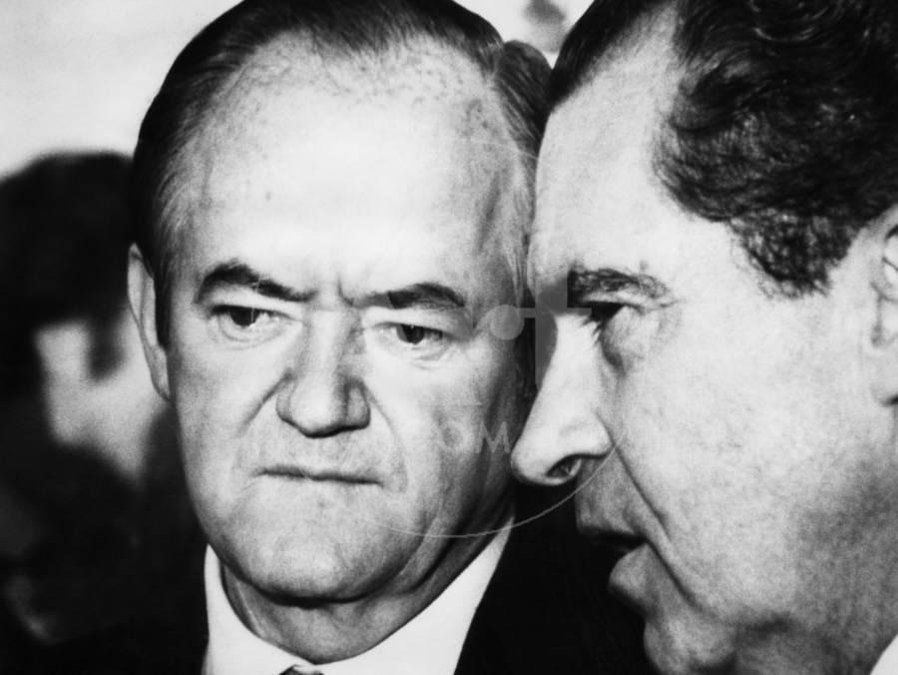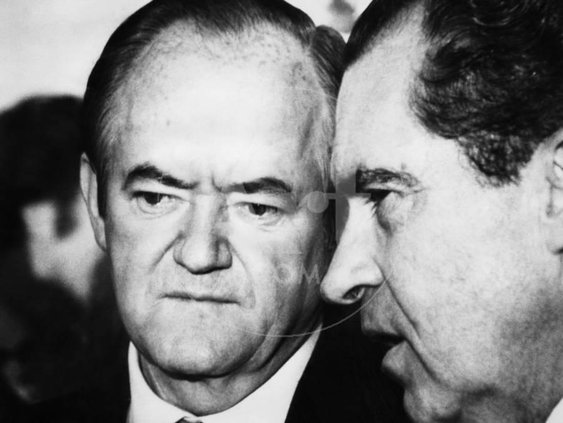“Tell your parents they shouldn’t vote for Nixon-Agnew.”
Those are the only exact words I remember 52 years after spending 9,900 minutes during my seventh grade year in Al Fleming’s social science class at Glen Edwards School in Lincoln.
It’s a shame, really, given that Mr. Fleming was arguably a mold-breaker for a small town teacher in 1968. His classroom was organized chaos with desks around clusters of large boxes the size washing machines are shipped in. The boxes were lined with every imaginable campaign sign of the era from Democrats and Republicans to non-partisan offices to state ballot measures.
I remember the nine words for the fact they were out of line.
A public school teacher is not supposed to express personal political views in the classroom.
In fairness, it was more than just nine words. Mr. Fleming gave a quick synopsis of his perceived evils of Richard Nixon and Spiro Agnew.
Keep in mind this was 1968. Vietnam War protestors were daily occurrences. There had been more than 100 riots in various cities after the assassination of Martin Luther King on April 4. Senator Robert Kennedy was assassinated after winning the California primary on June 5. There was rioting at the Democratic National Convention in Chicago.
You didn’t have to get me hooked on politics or current events. I had subscribed to Time and Newsweek magazines with earnings from odd jobs. After I devoured them from front to back I took the covers and used thumb tacks to line my bedroom walls.
To be honest, I doubt many of my classmates went home and started nagging their parents to vote for Humbert Humphrey. Several that picked up on what Mr. Fleming said as not being kosher dismissed it as simply “Mr. Fleming being Mr. Fleming.”
When I shared what Mr. Fleming said with my mother she noted you should never automatically take what anyone says as the gospel. She also pointed out that Mr. Fleming was a member of the Placer County Democratic Party Central Committee.
As for my political leanings at the time, I used to take delight in responding to grilling about politics from an overbearing aunt from my father’s side of the family by telling her I intended to register as a Democrat. Aunt Ethel would gasp so hard you’d think she was having a heart attack.
I’d like to think what Mr. Fleming used class time 52 years ago to tell supposedly impressionable seventh graders about how their parents should vote in the presidential election was a lapse of judgment and not part of his planned curriculum.
Whether it was doesn’t matter. Of the 30 or so students in the classroom I’d venture to say most took it as part of the background noise they endured during a 55-minute class before getting in to more important things such as recess. It had practically zero impacts on classmates who were more dialed into politics or current events as I was. They had already staked out their positions on the presidential election even though they couldn’t vote. As for me it was the day that truth hit home. Teachers shouldn’t be viewed as the all-knowing and powerful Wizard of Oz. You can be led down the yellow brick road if you take every word they utter as the absolute gospel when it comes to disciplines that deal with values and not defined outcomes such as math and science.
Mr. Fleming didn’t tip me one way or another politically. He didn’t have that kind of an impact. He did help feed my interest in my favorite school subject which was social science. And he certainly didn’t stop me from registering as a Republican when I was 18 although he might be surprised that in my first election I voted for Jerry Brown for governor.
Seven years later as a 19-year-old elected to the Western Placer Unified School District board I came down on the same side of an issue as Mr. Fleming. Lincoln High students wanted the dress code to allow spaghetti strap dresses for girls and walking shorts for boys prior to Oct. 1 and after May 1.
I instead proposed a basic dress code for health and safety reserving the power to delineate what the proper clothing style or haircut was to the principal. I argued that the school board hires site administrators to run schools and that we should invest that discretion in them to determine what was best to maintain decorum on a school campus.
Mr. Fleming agreed with the concept but argued that it should be based on the principal of student rights.
We both reached the same conclusion yet using different values and perceptions.
To be honest I got a better grasp of the working of the political system from that school board meeting than I did anything Mr. Fleming did in the classroom.
At the end of the day teachers shouldn’t be foisting their politics on students whether the world is better off with Joe Biden than Donald Trump or if Humbert Humphrey is less of a snake than Richard Nixon.
What they should be doing is finding ways to encourage their charges to go through life not only more engaged with the system but looking for ways to make things work without getting caught up on absolutes based on their narrow view of say a proposed dress code change.
That’s not easy to do. And along the way a social science teacher will have a misstep or two. What matters, though, is getting students engaged.





